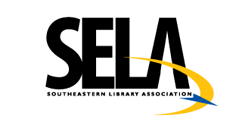Abstract
Live virtual reference programs in the university setting have blossomed in recent years as librarians have aspired to become as “virtual” as the resources they offer. While some libraries have chosen to limit their service to affiliated members, many have preferred to open their programs to the wider community. The motivation to do so is perhaps particularly strong among public university librarians, who often feel a dual responsibility to their own affiliates and to the citizens of their state. However, the decision to offer a chat reference service to the public raises a number of legal, ethical, and practical questions concerning the use of subscription databases.
Although some librarians place non-affiliated chat patrons in the same category as walk-in patrons, to whom database access is generally allowed, most consider the use of subscription databases with non-affiliated patrons to be a clear violation of licensing agreements – and herein lies the dilemma. Do these access restrictions place an unreasonable burden on the chat librarian, who must determine the patron’s affiliation and adjust the level of service to match the patron’s status? Is a two-tiered service, in which some patrons receive more in-depth answers than others, ethically acceptable? Can libraries devise strategies to minimize these apparent discrepancies in service? Discussion of these questions has been largely speculative and has provided few useful conclusions or guidelines for the practicing virtual librarian. This study attempts to examine the issue through the prism of real questions in a functioning, live virtual reference program: the QuestionPoint chat service at the University of Alabama. The goal of the study is three-fold: 1) to define the issues in the context of current discussion in the field; 2) to assess the nature of the problem as evidenced by transcripts of actual live virtual reference exchanges; and 3) to evaluate the options available to librarians who must find alternative sources when database use is not permitted.
Publication Date
Spring 2005
Included in
Business Law, Public Responsibility, and Ethics Commons, Communication Technology and New Media Commons, Library and Information Science Commons
